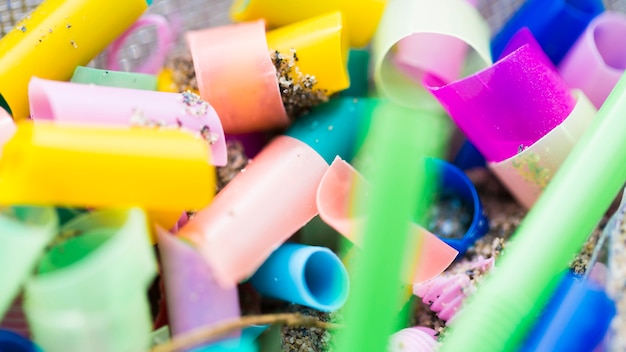
Throughout history, the advancements that make life more convenient often come with significant downsides. This is especially true with plastic products and packaging. While inexpensive plastics have simplified the distribution of food and water, there are increasing concerns about their impact, which suggests it’s time to reconsider our heavy reliance on them.
I’m convinced our health and our planet would benefit significantly from cutting down on plastic use. Chemicals like Bisphenol-A (BPA) often make the news due to health concerns, but the issues extend beyond just a few compounds. BPA is added to plastics for durability but can disrupt hormones and even mimic estrogen, leading to health issues like weight gain and hormone imbalances. The Yale School of Environmental Studies links BPA and phthalates to numerous health problems, including reproductive issues, early puberty, decreased sperm quality, and various cancers. These chemicals can leach into food from packaging, and a CDC report found that over 92% of people tested had these substances in their bodies.
Plastics also damage the environment significantly. They break down slowly and have been found in places far from human habitation, like Antarctica. In the ocean, UV light and saltwater cause plastics to release toxins, affecting marine life and eventually entering the human food chain. Charles Moore, who helped raise awareness about the Pacific Garbage Patch, argues plastic pollution is more urgent for marine life than climate change. He emphasized that no ocean is free from pollution today.
With more than 1 trillion plastic bags used worldwide each year and only a small fraction recycled, the environmental toll is massive. Single-use plastic bags alone create millions of tons of waste. While regulatory agencies often consider plastics safe, this is usually because they haven’t been thoroughly tested rather than proven harmless.
The documentary “Unacceptable Levels” highlights common sources of plastic pollution in homes. Many people dismiss these concerns, likening them to past misconceptions about smoking or DDT. In the past, practices now seen as clearly harmful, like letting children play near DDT or encouraging cigarette use, were considered safe. Plastics might be viewed in the same way in the future.
Given their persistence in the environment and contribution to pollution, reducing plastic use is critical. By cutting back on the amount we purchase and use, we can decrease plastic waste and pollution, and save money in the process. Consider how much plastic is part of your everyday life and think about how you can reduce it. What steps have you taken to minimize plastic use? Feel free to share your thoughts!

